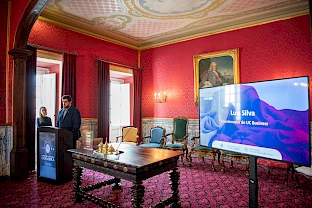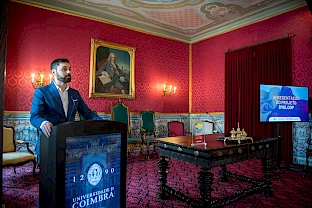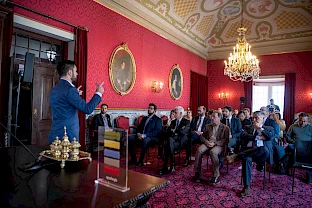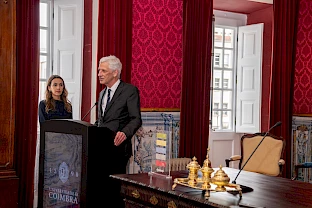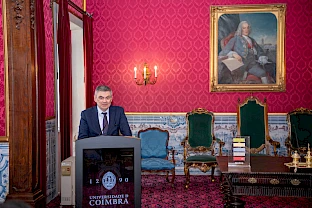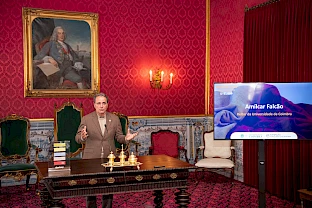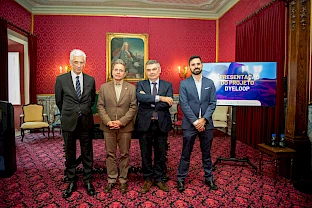UC develops innovative technology for cheaper and more sustainable textile dyeing
The DyeLoop project has received €1.4 million in funding from the Calouste Gulbenkian Foundation.
The University of Coimbra (UC) is developing innovative technologies to make textile dyeing more cost-effective and sustainable. The project DyeLoop – Circular Technologies for Textile Dyeing, funded by the Calouste Gulbenkian Foundation, was officially presented on 18 February at 14:30 in a ceremony at the UC Senate Room. Focusing on sustainability in the textile sector, DyeLoop uses unique circular economy technologies to reuse dyes and significantly reduce water and energy consumption.
"This is a paradigm shift for the textile industry. After the dyeing process, instead of sending the wash water for treatment and disposal, DyeLoop recycles the dye bath effluents back into the process," explains Jorge Pereira, the project coordinator.
Over the next three years, the research team will also explore new biotechnological solutions for producing more sustainable textiles. "DyeLoop will enable the development and implementation of an industrial prototype, expected to reduce textile dyeing costs by more than 50%," adds Jorge Pereira, professor and researcher at the UC Faculty of Sciences and Technology. The project has proven to be an effective means of optimising essential resources and minimising environmental impact, aligning with the Sustainable Development Goals of the UN's 2030 Agenda.
The Calouste Gulbenkian Foundation has granted €1.4 million to support this pioneering project. The funding agreement was officially signed yesterday at the project's launch ceremony, attended by the Rector of the University of Coimbra, Amílcar Falcão, the President of the Board of Trustees of the Calouste Gulbenkian Foundation, António M. Feijó, the Executive Trustee, António Cruz Serra, and the Project Coordinator, Jorge Pereira.

